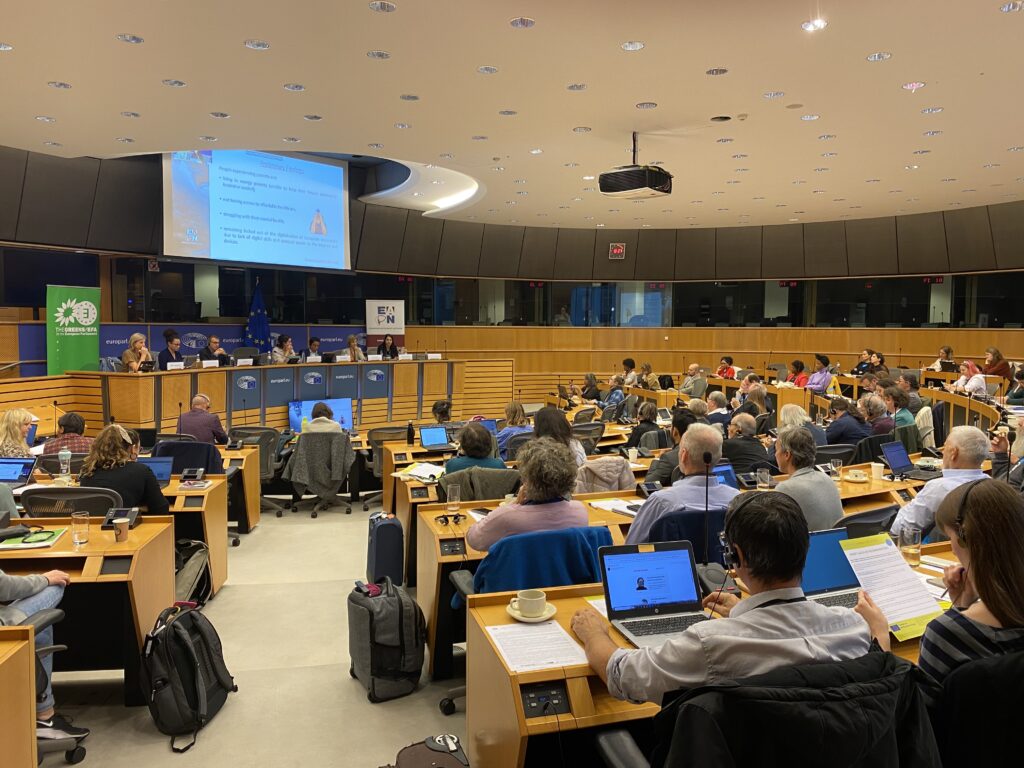“At a time of rising inflation, high costs of living and the consequences of the pandemic, people living in poverty struggle to meet basic needs of life, the number of homeless people is increasing, while gender and social inequalities are also growing,” it was stated at the time of presentation of the European Anti-Poverty Network’s (EAPN) Annual Poverty Watch in the European Parliament.
The report, entitled “In Unequal Times of Crises”, was presented on the occasion of October 17, the International Day for the Eradication of Poverty, in cooperation with members of the Left and the Green Parliamentary Groups, where the European Anti-Poverty Network – Serbia was represented by the SeConS Development Initiative Group.
The report summarizes the findings obtained from national anti-poverty networks in 20 countries, as well as findings obtained from the International Federation of Social Workers. Key messages and recommendations were addressed to decision-makers in order to effectively respond to old and new challenges of poverty in the aftermath of the Covid-19 crisis, the war in Ukraine, rising inflation and the sharp increase in the cost of living that not only deepens the poverty of those who are already poor, but also pushes new population groups into poverty.
Some of the key findings indicate that there is a growing number of poor people who rely on food banks for survival, that the Covid-19 pandemic has shown that health care systems are poorly structured and not accessible to everyone, especially the poor, that people’s mental health has deteriorated, that the new emergency welfare schemes across Europe are not adequate in the fight against inflation. There is also a growing number of people living in so-called energy poverty because the war in Ukraine has further threatened national economies, already damaged by the pandemic, so there are ever more those who have to choose between energy, rent and food. The number of homeless people has increased and the supply of affordable social housing is small. Excessive reliance on digitization leads to social inequalities because the poorest cannot access information about their rights, while gender inequality is on the rise as well: there is a growing number of women who are single parents, they carry a greater burden of unpaid household work and they fare worse in labor market. Poverty also affects children. These are some of the conclusions presented in the course of presentation of this report.

